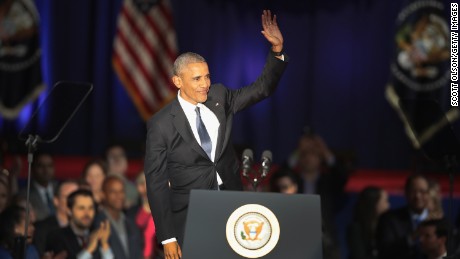As America's first president, many actions taken by George Washington are considered modern precedents in modern America. In his address, he set the precedent for a 2-term presidency to prevent abuse of power. Washington warns of the formation of factions in American politics, citing that it will lead to excessive disunity. He believed this would weaken the US as a people. He mentions the importances of taxes and funding the government appropriately, and that even though its resented it is still necessary. As he progresses, he preaches neutrality and isolationism, and not to get involved in the petty conflicts of Europe. Washington ends this speech with thanks to the American people, who enabled his success.

Washington's Farewell address

Another precedent Washington set was a farewell address, as President Barack Obama's address is pictured here.
Washington's Farewell address

Another precedent Washington set was a farewell address, as President Barack Obama's address is pictured here.
Comments
Post a Comment